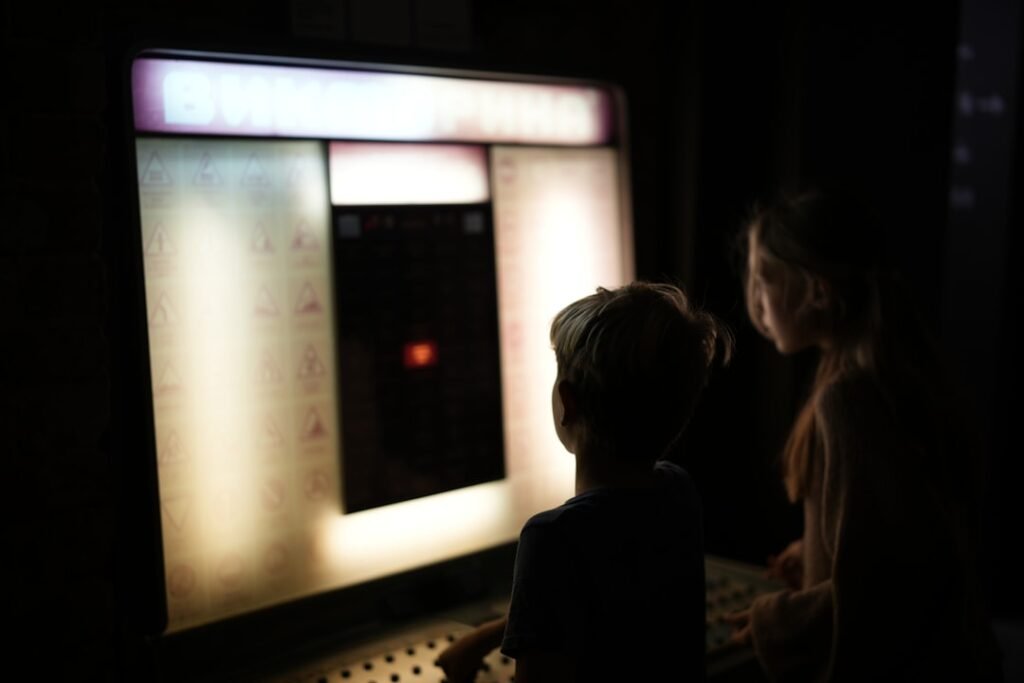Now Reading: Building a Better World through Gaming
-
01
Building a Better World through Gaming
Building a Better World through Gaming

Gaming has evolved far beyond mere entertainment; it has become a powerful medium for creating positive change in society. The immersive nature of video games allows players to engage with complex narratives and social issues in ways that traditional media often cannot. Through interactive storytelling, gamers can experience the struggles and triumphs of characters facing real-world challenges, fostering a deeper understanding of various social issues.
This unique engagement can inspire players to take action, whether through advocacy, volunteering, or simply raising awareness about important causes. Moreover, the gaming community itself has shown remarkable resilience and solidarity in times of crisis. Fundraising initiatives within gaming platforms have raised millions for disaster relief, medical research, and social justice movements.
Events like Games Done Quick and Extra Life have harnessed the collective power of gamers to support charitable organizations, demonstrating that gaming can be a force for good. As players unite for a common cause, they not only contribute to meaningful change but also strengthen the bonds within the gaming community, proving that the virtual world can have a tangible impact on the real one.
Key Takeaways
- Gaming has the power to create positive change by engaging and inspiring individuals to take action in real-world issues.
- Gaming fosters collaboration and teamwork by providing a platform for players to work together towards common goals and objectives.
- Gaming can be used as a tool for education and learning, offering interactive and immersive experiences that enhance critical thinking and problem-solving skills.
- The impact of gaming on mental health and well-being is significant, as it provides an outlet for stress relief and relaxation, as well as opportunities for social connection and support.
- Gaming serves as a platform for social impact and advocacy, allowing players to raise awareness and support causes through in-game events and campaigns.
How Gaming Can Foster Collaboration and Teamwork
At its core, gaming is often about collaboration and teamwork. Many popular titles require players to work together to achieve common goals, whether it’s defeating a formidable boss in a raid or solving intricate puzzles in a cooperative adventure. This collaborative aspect of gaming encourages players to communicate effectively, strategize together, and build trust among teammates.
These skills are not only essential in the gaming world but are also transferable to real-life situations, such as workplace dynamics and community projects. Furthermore, multiplayer games often create diverse teams that bring together individuals from various backgrounds and cultures. This diversity enriches the gaming experience and fosters an environment where players learn to appreciate different perspectives.
As they navigate challenges together, players develop a sense of camaraderie that transcends geographical boundaries. The friendships formed in these virtual spaces can lead to lasting connections in the real world, proving that gaming can be a powerful catalyst for collaboration and teamwork.
Using Gaming as a Tool for Education and Learning

The educational potential of gaming is immense, with many educators recognizing its ability to engage students in ways that traditional teaching methods may not. Educational games can transform complex subjects into interactive experiences, making learning more enjoyable and effective. For instance, games that simulate historical events allow players to immerse themselves in different time periods, fostering a deeper understanding of history while honing critical thinking skills.
This hands-on approach encourages students to explore concepts actively rather than passively absorbing information. Moreover, gamification—the integration of game elements into non-game contexts—has gained traction in educational settings. By incorporating rewards, challenges, and competition into learning environments, educators can motivate students to participate more actively in their education.
This method not only enhances engagement but also promotes essential skills such as problem-solving and resilience. As students navigate through challenges in educational games, they learn to adapt and persevere, preparing them for real-world obstacles.
The Impact of Gaming on Mental Health and Well-being
The relationship between gaming and mental health is complex but increasingly recognized as significant. For many individuals, gaming serves as an escape from the stresses of daily life, providing a safe space to unwind and recharge. Engaging with virtual worlds allows players to immerse themselves in experiences that can be both exhilarating and therapeutic.
Whether it’s exploring vast landscapes or embarking on epic quests, gaming offers a form of escapism that can help alleviate anxiety and depression. Additionally, gaming can foster social connections that are vital for mental well-being. Online multiplayer games create communities where players can interact with others who share similar interests.
These connections can lead to friendships that provide emotional support and companionship, reducing feelings of isolation. Furthermore, many games incorporate elements of mindfulness and relaxation, encouraging players to focus on the present moment and engage in self-care practices. As mental health awareness continues to grow, the positive impact of gaming on well-being is becoming more widely acknowledged.
Gaming as a Platform for Social Impact and Advocacy
In recent years, the gaming industry has increasingly embraced its role as a platform for social impact and advocacy. Game developers are using their creative talents to address pressing social issues such as climate change, inequality, and mental health awareness. Titles like “Life is Strange” tackle themes of identity and personal struggle, while games like “Sea of Solitude” explore mental health through metaphorical storytelling.
By weaving these themes into gameplay, developers encourage players to reflect on their own experiences and consider broader societal implications. Moreover, gaming events often serve as platforms for advocacy campaigns. Organizations leverage the popularity of gaming conventions and tournaments to raise awareness about important causes.
For instance, charity streams on platforms like Twitch have become a popular way for gamers to support various initiatives while engaging their audiences. These events not only raise funds but also educate viewers about critical issues, demonstrating how gaming can be harnessed as a tool for positive change.
Building Empathy and Understanding through Gaming

One of the most profound effects of gaming is its ability to build empathy and understanding among players. Through immersive storytelling and character development, games allow players to step into the shoes of others, experiencing their struggles and triumphs firsthand. This unique perspective fosters empathy by encouraging players to consider viewpoints different from their own.
Games like “That Dragon, Cancer” provide poignant narratives that explore themes of grief and loss, prompting players to reflect on their own emotions and experiences. Additionally, multiplayer games often require players to collaborate with individuals from diverse backgrounds. This interaction cultivates an appreciation for different cultures and perspectives, breaking down barriers that may exist in real life.
As players work together towards common goals, they learn to communicate effectively and respect one another’s contributions. This sense of shared experience can lead to greater understanding and compassion among individuals who may never have crossed paths otherwise.
The Role of Gaming in Environmental and Sustainability Initiatives
As global awareness of environmental issues grows, the gaming industry is stepping up to address sustainability through innovative initiatives. Many game developers are incorporating eco-friendly themes into their narratives or creating gameplay mechanics that promote environmental stewardship. For example, games like “Eco” challenge players to build civilizations while considering their ecological impact, encouraging them to think critically about resource management and sustainability.
Moreover, the gaming community has rallied around environmental causes through fundraising efforts and awareness campaigns. Events like “Earth Day” streams on platforms like Twitch bring together gamers to raise funds for environmental organizations while educating viewers about pressing ecological issues. By leveraging their influence and reach, gamers can contribute to meaningful change in environmental conservation efforts.
Leveraging Gaming for Global Philanthropy and Community Building
Gaming has emerged as a powerful tool for global philanthropy and community building. The rise of online streaming platforms has enabled gamers to connect with audiences worldwide while raising funds for various charitable causes. Charity streams have become a popular way for gamers to leverage their skills and passion for gaming to support organizations dedicated to making a difference in areas such as healthcare, education, and disaster relief.
Furthermore, gaming communities often come together during crises or natural disasters to support those affected. Initiatives like “Gamer’s Outreach” provide entertainment and support for children in hospitals through video game donations and setups. These efforts not only bring joy to those in need but also foster a sense of community among gamers who share a common goal of making a positive impact.
In conclusion, the power of gaming extends far beyond entertainment; it serves as a catalyst for positive change across various domains. From fostering collaboration and teamwork to promoting education and mental well-being, gaming has proven its potential as a force for good in society. As we continue to explore the multifaceted impact of gaming on our world, it becomes increasingly clear that this medium holds the key to unlocking new possibilities for empathy, understanding, sustainability, and philanthropy—transforming not just individual lives but entire communities along the way.
Gaming has the power to make the world a better place, especially with the rise of accessibility features in video games. These features are revolutionizing the way games are played and allowing more people to enjoy the immersive experience of gaming. In a related article on how accessibility features are revolutionizing video games, it discusses the importance of making games more inclusive for all players. By incorporating features such as customizable controls, subtitles, and colorblind modes, developers are ensuring that everyone can participate in the gaming community. This inclusivity not only enhances the gaming experience but also promotes a more diverse and welcoming environment for all gamers.
FAQs
What is the article “Gaming Can Make a Better World” about?
The article discusses how video games have the potential to positively impact the world by promoting education, social interaction, and problem-solving skills.
How can gaming promote education?
Gaming can promote education by providing interactive and engaging platforms for learning. Many educational video games are designed to teach subjects such as math, science, and history in a fun and immersive way.
How does gaming encourage social interaction?
Online multiplayer games allow players to connect with others from around the world, fostering social interaction and teamwork. Additionally, gaming communities provide a space for like-minded individuals to come together and form friendships.
What problem-solving skills can be developed through gaming?
Many video games require players to think critically, strategize, and make quick decisions, which can help develop problem-solving skills that are applicable in real-life situations.
Are there any examples of video games making a positive impact on the world?
Yes, there are several examples of video games being used for social good, such as games that raise awareness for important issues, promote charitable causes, or provide therapeutic benefits for individuals with disabilities.
Can excessive gaming have negative effects?
Excessive gaming can lead to negative effects such as addiction, social isolation, and physical health issues. It is important for individuals to maintain a healthy balance between gaming and other activities.




























Pingback: Essential PC Accessories for Gamers
Pingback: 2025 Gaming News: Next-Gen Consoles and VR Dominance